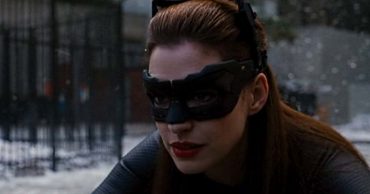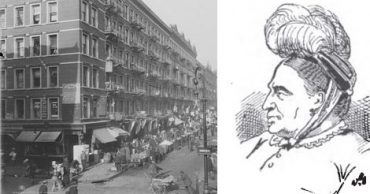It’s been tough all around lately for any Hollywood professionals even remotely near to the recent Harvey Weinstein blacklist news. Director Terry Zwigoff was swept into the controversy when he expressed interest in casting Mira Sorvino for BAD SANTA. DEADLINE recently reported that Zwigoff tweeted his apologies to Mira, telling her that whenever he mentioned her to the Weinsteins, he’d hear the “CLICK” of the phone on the other end, hanging up on him.
Completely aside from the current news, Terry Zwigoff has carved out a significant contribution to documentary and darker comedy films. His critically acclaimed documentary Crumb was named on more than 150 Ten Best Lists. His dramatic comedy Ghost World received nominations for Golden Globe Awards and an Academy Award. He’s also done well with Art School Confidential and Budding Prospects.
His Appleton, Wisconsin dairy farmer roots inspired him in varied ways. His father worked folding clothes in a clothing store for a time, and Zwigoff felt that doing that kind of job was “grim”. Zwigoff never wanted to do that kind of job. He wanted to do anything else than that. For a time, he worked at a civil servant job in the welfare department. That’s when he started working on his first documentary film. One film led to another, and before he knew it, people were bringing scripts to him to consider. He doesn’t read comic books much, even though he has had several successful films based on comic books. He still prefers reading books. He’s a highly articulate and intelligent man. Here are five bits of trivia he’s shared himself:
Zwigoff read the script for BAD SANTA the first time on an airplane and laughed so loud he embarrassed himself.
He got the script from his agent, who warned him that it was a film that would never be made. But he said that the dialogue was great, and the script was funny. He called his agent and told her that he wanted to do the film. She said, “Good luck finding anybody to make it.” He pitched the film to a couple of studios, but was turned down by all of them. He got a phone call about a month later from Bob and Harvey Weinstein. They had just seen Ghost World, loved it, and wanted to do a Terry Zwigoff film. He sent the script to them, and the next morning they called him and said they wanted to make the film.
Zwigoff used to work at Last Gasp Publishing packing underground comic books.
Bologna Mocassins was the comic book, and he said it was “one of the worst comic books ever” though he can’t remember exactly why. The producer of it was Leonardo DiCaprio’s father, George DiCaprio. He mentioned that the company is still at the same location in New York City.
Zwigoff played mandolin for years, and that’s why he tracked down Louie Bluie to make the film about him.
Zwigoff had never made a film before, and he wasn’t a film buff either. He would only “get excited” about three films or so a year. He liked Woodie Allen and David Lynch films. He described his taste in music as also being very narrow, and focused mostly on the late 1920s and early 1930s. He has a collection of old 78 rpm records;and he listens mostly to that era. He finds contemporary music “irritating” and doesn’t enjoy it at all. But he feels that the greatest music ever created was country blues jug band music from the Black South. He found a 78 rpm record from 1934 called “State Street Rag”, and discovered that it was a “mandolin virtuoso masterpiece”. He did about two years of detective work to find the mandolin virtuoso, Louie Bluie, and finally found him in Detroit.
Zwigoff can play cello, too.
He can be heard playing his cello as a member of R.Crumb and The Cheap Suit Serenaders. He also played saw, mandolin, and Stroh violin with the band. They specialized in American retro string songs in the styles of ragtime, hokum, evergreen jazz standards, country blues, vaudeville, western swing, medicine show song, and old-time music from the 1920s. The group recorded three 331/3 rpm records and 78 rpm singles for Blue Goose label.
He feels that all his films are to some degree about the same theme.
He views that theme as the risks and rewards of being and artist, or being an outsider. He said that he was an alienated kid, and he felt that the culture he grew up in was also alienating. He really wanted to connect, to fit in, and he’s still trying to find out where that is. He really prefers to stay at home, read books, play volleyball and drink beer.
 Follow Us
Follow Us




